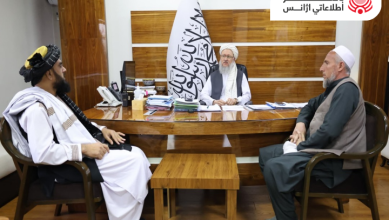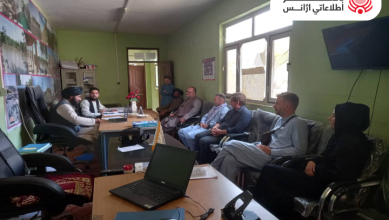
Sunday, September 13, 2020
Kabul (BNA) After nearly two decades of war that has killed tens of thousands, peace talks between the Government of Islamic Republic of Afghanistan and the Taliban have opened in Qatar's capital, Doha on Saturday.
Dr. Abdullah Abdullah, chairperson of Afghanistan's High Council for National Reconciliation, Taliban deputy leader Mullah Abdul Ghani Baradar and US Secretary of State Mike Pompeo were the key speakers at yesterday’s opening ceremony at a hotel in Doha.
The negotiations, where the two warring sides will sit face-to-face for the first time, will start on Monday.
Addressing the opening ceremony, Dr. Abdullah Abdullah spoke about seeking a dignified and lasting peace. "I believe that if we give hands to each other and honestly work for peace, the current ongoing misery in the country will end," he said, calling for a "humanitarian ceasefire".
“We have come here with the good will and good intention to stop the 40 years of bloodshed and achieve a countrywide and lasting peace,” Dr. Abdullah said. “The current conflict has no winner through war and military means, but there will be no loser if this crisis is resolved through submission to the will of the people.”
He said his team had arrived in Qatar for the establishment of durable peace in Afghanistan on the basis of the teachings of Islam and legitimate demand of the people.
“We have a clear intention for sincere dialogue with the Taliban on ending decades of war and ongoing bloodshed in the country,” he insisted.
Abdullah added the people of Afghanistan wanted a government system based on constitutions. Due to lack of a proper system, he said, they had witnessed bitter experiences.
Abdullah recalled convention of the Consultative Loya Jirga, evolving a national and regional consensus, inauguration of national peace conferences and issuance of religious fatwas were among government efforts for peace and stability.
Meanwhile, Taliban’s Baradar repeated his group's demand for the country to adopt an "Islamic system". "We want Afghanistan to be an independent, developed country, and it should have a form of Islamic system, where all its citizens see themselves reflected."
He said: “Achieving this great goal should not be based on one’s personal interests but based on the national interest. The Taliban assure its nation that the way would be paved for peace during intra-Afghan talks.”
The US Secretary of State Mike Pompeo, for his part, told the Afghan sides that "the choice of your future political system is, of course, yours to make" as he urged them to "seize the opportunity" to secure peace.
"Each of you, I hope you will look inside your hearts; each of you carry a great responsibility, but know that you're not alone.
The entire world wants you to succeed and is counting on you to succeed," he said.
Kicking off proceedings earlier on Saturday, Qatari Foreign Minister Sheikh Mohammed bin Abdulrahman Al Thani said both parties must "rise above all form of division … by reaching an agreement on the basis of no victor and no vanquished".
The intra-Afghan talks were set to take place in March but have repeatedly been delayed over a prisoner exchange agreement made as part of the United States-Taliban deal signed in February. In the agreement, the Taliban had agreed to release 1,000 Afghan troops, while the government said it would release 5,000 Taliban prisoners.
France and Australia objected to freeing six of the Taliban prisoners who were involved in the killing of their nationals.
Taliban and Afghan government sources said a compromise was reached by sending the six prisoners to Qatar. The prisoners arrived in Doha on Friday and will remain in custody there.
US Special Representative for Afghanistan Zalmay Khalilzad said although the talks raise hopes of the war ending in the country, many challenges remain.
"This is a new phase in diplomacy for peace in Afghanistan," Khalilzad told reporters in a telephone briefing on Friday.
"These negotiations are an important achievement, but there are … significant challenges on the way to reaching an agreement."




